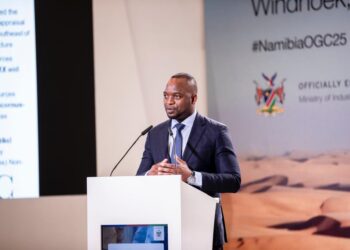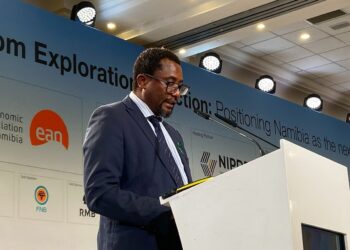
The European Union (EU) has awarded a N$42 million grant to support three initiatives aimed at strengthening Namibian civil society organizations (CSOs) to contribute to policy development in green energy and extractive industries.
EU Ambassador Ana Beatriz Martins announced the funding, which falls under a bilateral program with Namibia designed to enhance civil society’s engagement in national development.
“These projects aim to equip CSOs to contribute meaningfully to policy debates on the development of Namibia’s fast-growing green energy and extractive industries while ensuring their economic, environmental, and social sustainability,†Martins said.
The National Planning Commission (NPC) Executive Director, Micheal Humavindu, highlighted the government’s commitment to finalizing a National CSO Policy. This policy aims to enable, capacitate, and incentivize more CSOs to participate in competitive calls for proposals by development partners.
“We must see communities confidently engaging in processes such as environmental impact assessments and community development agreements. This grant must lead to effective developmental outcomes that empower indigenous CSOs and ensure sustainable community benefits,†Humavindu emphasized.
The grant will support the work of several organizations, including the Integrated Rural Development and Nature Conservation (IRDNC), Namibia Development Trust (NDT), Namibia Nature Foundation (NNF), and Deutsche Welle Academy, in collaboration with IPPR, Namibia Media Trust (NMT), and the Legal Assistance Centre (LAC).
Ronny Dempers of IRDNC outlined their project’s focus on empowering CSOs to advocate for their rights and actively participate in the green hydrogen and mining sectors. “We aim to ensure communities benefit from and have a voice in these critical industries while holding government and private sector actors accountable,†he said.
Liesebeth Van Brink of the Namibia Nature Foundation emphasized the need to include marginalized communities in industrial development. “This initiative empowers conservancies in the Kunene and Kavango regions to engage meaningfully in environmental impact assessments, ensuring their voices are heard in decisions impacting their resources,†she said.
Peter Deselears, representing Deutsche Welle Academy and its partners, introduced the Eco Dialogue Collective, a project focused on transparency and meaningful participation in Namibia’s green economy and extractive sectors.
“This initiative will establish a collaborative newsroom, strengthen public dialogue, and build capacities in research, advocacy, and media skills. It aims to produce high-quality media content and foster dialogue between civil society and policymakers for sustainable development,†Deselears said.
The three projects according to the EU, were selected through a competitive bidding process initiated in 2024.











